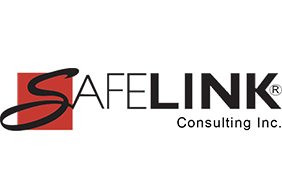Are you an employer who needs to provide disposable N95 filtering facepiece respirators (FFRs) to your workers but are unable to secure them due to the COVID-19 pandemic? Read on to learn how OSHA's enforcement guidance for respiratory protection and the N95 shortage along with FDA's role with masks and respirators can affect your business.
OSHA has issued a Memorandum dated April 3, 2020 to OSHA Regional Administrators and State Plan Designees - Subject: Enforcement Guidance for Respiratory Protection and the N95 Shortage Due to the Coronavirus Disease 2019 (COVID-19) Pandemic.
This Memorandum to OSHA’s enforcement team directs them how to inspect against 29 CFR § 1910.134 and certain other health standards. It applies in all industries, including workplaces in which:
- Healthcare personnel (HCP) are exposed to patients with suspected or confirmed coronavirus disease 2019 (COVID-19) and other sources of SARS-CoV-2 (the virus that causes COVID-19).
- Protection of workers exposed to other respiratory hazards is impacted by the shortage resulting from the response to the COVID-19 pandemic.
Learn more about COVID-19 Safety Management Program
The strategies are:
- Respirators that come from the U.S. Strategic National Stockpile can be used beyond the manufacturer-designated shelf life for healthcare delivery for care of patients with COVID-19, tuberculosis, measles, and varicella. However, not recommended to be used in surgical settings.
- Follow CDC’s Strategies for Optimizing the Supply of N95 Respirators: Crisis/Alternate Strategies.
- Continue to manage a respiratory protection program (RPP) that includes:
- Medical evaluation,
- Training,
- Fit testing, and
- Updating the written program as necessary to reflect changes in workplace conditions that affect respirator use.
- Reassess engineering controls, work practices, and administrative controls to identify any changes that can be made to decrease the need for N95 respirators. This could include:
- Using wet methods or portable local exhaust systems;
- Move operations outdoors;
- Temporarily suspend certain non-essential operations.
- Consider use of alternative classes of respirators that provide equal or greater protection compared to the N95. Examples could be NIOSH-approved:
- non-disposable, elastomeric respirators
- powered, air-purifying respirators (PAPRs)
- N99, N100, R95, R99, R100, P95, P99 and P100.
GET POSTER: How to Self-check an N95 Respirator
The following is a summary of the enforcement guidance provided to OSHA’s CSHO’s inspecting workplace where workers are using N95 FRRs.
Extended use or reuse of N95s:
- Respirator must maintain its structural and functional integrity;
- Filter material must not be physically damaged, soiled, or contaminated (e.g. with blood, oil, paint);
- Written RPP must address circumstances under which a disposable respirator will be considered contaminated and not available for extended use or reuse;
- Extended use is preferred over reuse due to contact transmission when donning and doffing;
- Perform user seal check each time respirator is donned;
- Do not use respirator that cannot be user seal checked;
- Store respirator properly when not in use;
- Employers must understand that when structural and functional integrity of any part of respirator is compromised, it should be discarded;
- Training is done for reuse of respirators to explain sequence for donning/doffing procedures to prevent contamination.
Use of expired N95s:
- Employer must show good faith effort to acquire new respirators or that employer is following guidelines for use of N95 FFRs beyond the manufacturer’s recommended shelf life;
- Only using previously NIOSH-certified expired N95 FFRs or if employer is using expired N95s from their own inventory, then employer should seek assistance from the respirator manufacturer or independent lab regarding testing of those stored respirators prior to use;
- Notify workers that they are using expired N95s;
- Do not co-mingle products that are expired with items that are within their shelf life;
- Visually inspect, or ensure workers visually inspect, the N95 FFRs to determine if structural and functional integrity has been compromised;
Do not use expired N95s:
- When performing surgical procedures on patients infected with, or potentially infected with, SARS-CoV-2;
- When procedures are expected to generate aerosols or procedures where respiratory secretions are likely to be poorly controlled (e.g. cardiopulmonary resuscitation, intubation, extubation, bronchoscopy, nebulizer therapy, sputum induction);
- Prioritize the use of N95s by activity type as described above;
- Follow CDC guidelines on Strategies for Optimizing the Supply of N95 Respirators
FDA list of authorized emergency-use respirators for HCP
OSHA will cite on a case-by-case basis and has directed their enforcement officers’ discretion when considering issuing citations in cases where:
- Employer has made a good faith effort to obtain other alternative respiratory protection;
- Employer has monitored their supply of N95s and prioritized their use according to CDC guidelines;
- Surgical masks and eye protection (e.g., face shields, goggles) were provided as interim measure to protect against splashes and large droplets (note that surgical masks are not respirators and do not provide protection against aerosol-generating procedures; and
- Other feasible measures, such as using partitions, restricting access, cohorting patient, or using other engineering controls, work practices, or administrative controls that reduce the need for respiratory protection, were implemented to protect employees.
In this Memorandum, OSHA directs the enforcement officer to cite when the employer fails to comply with fit testing, maintenance, care, and training requirements as serious violations.
COVID-19 and OSHA Guidance on N95 Respirators
FDA’s Role with Masks and Respirators:
As an added note, the U.S. Food and Drug Administration (FDA) has taken steps to expand the availability of face masks and respirators to help address this urgent public health concern. FDA issued an Enforcement Policy for Face Masks and Respirators During the Coronavirus Disease (COVID-19) Public Health Emergency (Revised) as a Guidance for Industry and Food and Drug Administration Staff. This guidance supersedes the enforcement policy that was issued on March 25, 2020. This guidance is a policy to help expand the availability of general use face masks for the general public and particulate filtering facepiece respirators for health care professionals during this pandemic. Enforcement Policy for Facemasks and Respirators During the Coronavirus Disease (COVID-19) Public Health Emergency Revised April 2020
Face masks and respirators are regulated by the FDA when they meet the definition of a device under section 201(h) of the Federal Food, Drug, and Cosmetic Act (FD&C Act). Generally, face masks fall within this definition when they are intended for a medical purpose, including for use by health care professionals. Face masks not intended for medical purposes are not medical devices. The Enforcement Policy at the link above provides a Table that shows Classification Regulations, Device Types, and Product Codes for masks and respirators that are regulated by FDA.
Managing COVID-19 Infection Control for Your Dental PracticeThis guidance goes on to state:
- FDA recognizes that when alternatives such as FDA-cleared masks or respirators are unavailable that individuals, including healthcare professionals, might improvise PPE.
- They do not intend to object to this distribution and use of improvised PPE when no alternatives are available.
- FDA device marketing does not apply when face masks, face shields, and filtering facepiece respirators are marketed to the general public for general, non-medical purposes and are not intended for use in the diagnosis of disease or other conditions or in the cure, mitigation, treatment, or prevention of disease.
- All the other requirements of the FD&C Act do not apply to manufacturers, importers, and distributors of these products.
The FDA’s guidance document at the link provided above defines the steps that FDA is taking to expand the availability of face masks and respirators. They state that they are taking a risk-based approach and are clarifying the policies that FDA intends to apply to masks and respirators, including these products’ associated indications and claims. Section V of this document details FDA’s policy on device marketing authorization, FDA registration, and application of the FD&C Act as they affect the following types of face masks and face shields:
- Face masks, face shields and N95 respirators NOT intended for a medical purpose;
- Face masks intended for a medical purpose that are NOT intended to provide liquid barrier protection;
- Face shields intended for a medical purpose; and
- Surgical masks intended to provide liquid barrier protection.
In Section F of this Policy, FDA addresses alternatives to FDA-cleared or NIOSH-approved N95 respirators. One point is that they do not object to distribution (including importation) and use of respirators identified in the CDC recommendations without compliance with the following regulatory requirements:
- Prior submission of a premarket notification under section 510(k) of the FD&C Act and 21 CFR 807.81,
- Registration and Listing requirements in 21 CFR 807,
- Quality System Regulation requirements in 21 CFR 820, reports of corrections and removals in 21 CFR Part 806, and
- Unique Device Identification requirements in 21 CFR Part 830 and 21 CFR 801.20.
- Since FDA cannot confirm the authenticity of these respirators, they recommend that importers take appropriate steps to verify the authenticity of the products they import.
Section VI of this guidance addresses the facilitation of the safe reuse and conservation of PPE used for medical purposes and the decontamination of those items prior to reuse. It details the emergency use authorization (EUA) for decontaminated devices. FDA states it will work with manufacturers through its EUA process to facilitate expedited evaluation of their request. This document provides a list of information to be sent to FDA regarding the disinfection/decontamination controls. These EUAs for face masks intended for a medical purpose, surgical face masks and N95 respirators ask that manufacturers of these items that are not currently legally marketed in the U.S. as well as manufacturers who have not previously manufactured masks or respirators to send FDA certain information so FDA can determine if the device would be able to meet the EUA requirements.
FDA also states that they welcome the opportunity to work with manufacturers not previously engaged in medical device manufacturing with the interest and capability to manufacture face masks and respirators. If interested a manufacturer should send an email to describe their proposed approach. FDA states that they intend to collaborate with these manufacturers through its EUA process.
How to Achieve Dental OSHA Compliance for your Practice
Proper Removal of PPE for Infection Control
Need help in writing your employee safety policy? Contact an OSHA compliance consultant.
Learn more about what SafeLink Consulting can do to help your business with compliance services, including safety compliance, to meet OSHA training requirements and quality system consulting to meet FDA compliance. SafeLink Consulting assists businesses with workplace safety training, infection control training, HIPAA training online, quality systems, assessments, audits, due diligence, and more.
Industries include:
Dentistry compliance - assisting the dental practice with meeting requirements for OSHA, HIPAA, EPA, and CDC guidelines, patient safety and employee health & safety
Dental Laboratory compliance - assisting the dental lab with meeting requirements for OSHA, FDA, and CDC guidelines, employee health & safety, plus FDA requirements for lab manufacturing custom implant abutment /gmp for medical device manufacturers
Medical Device Manufacturers compliance - assisting with meeting OSHA compliance & FDA requirements, GMP - good manufacturing practices
General Industry compliance - assisting with OSHA compliance and FDA compliance as it pertains to the specific business
Beverage Industry compliance - assisting beverage businesses such as the craft brewery, winery, cidery, distillery, vintner with meeting OSHA compliance, health & safety, FDA requirements / GMP - Good Manufacturing Practices.
Get notification when new regulatory compliance training courses are added plus upcoming events by subscribing to our email news.








Leave Comment